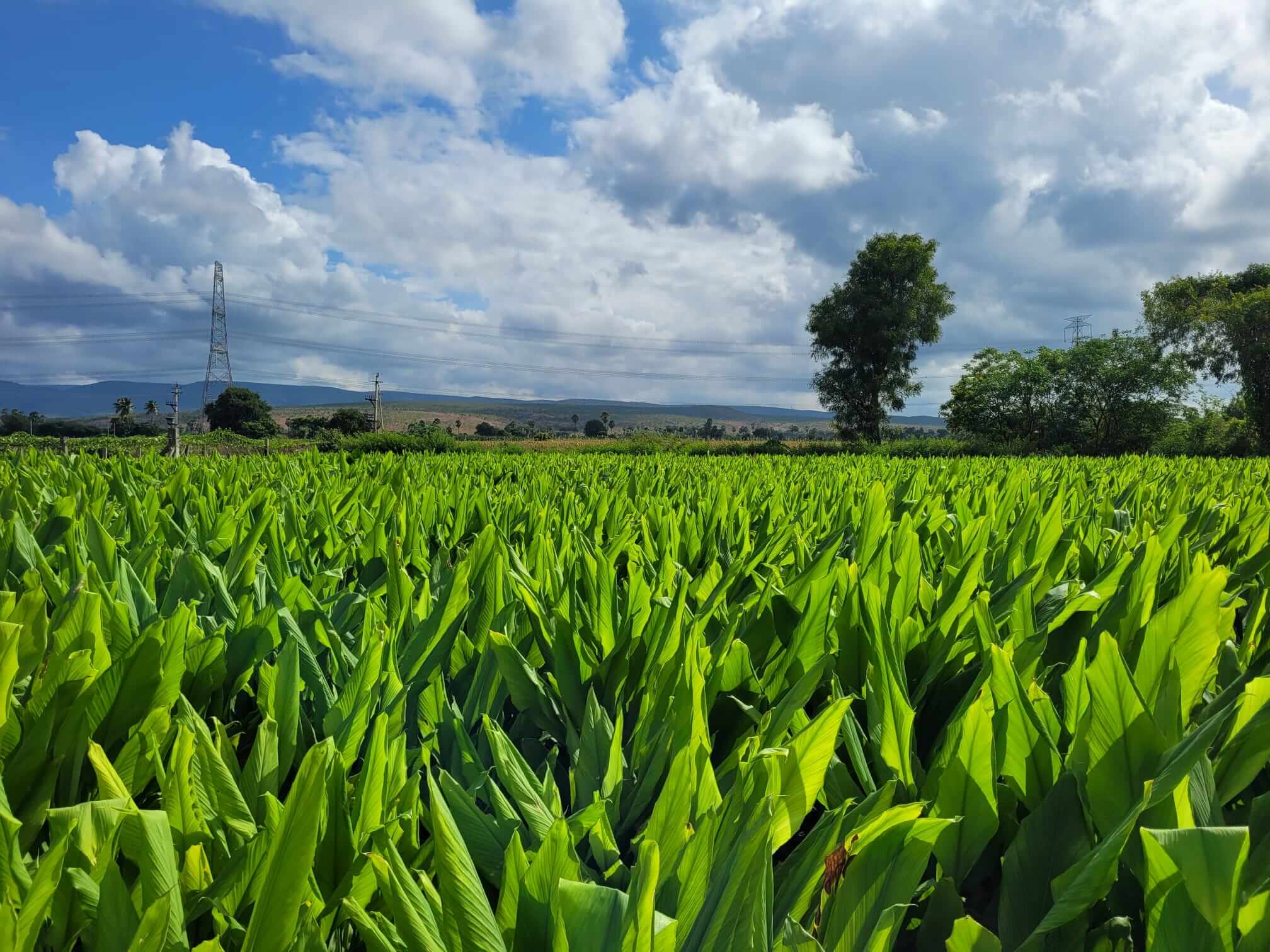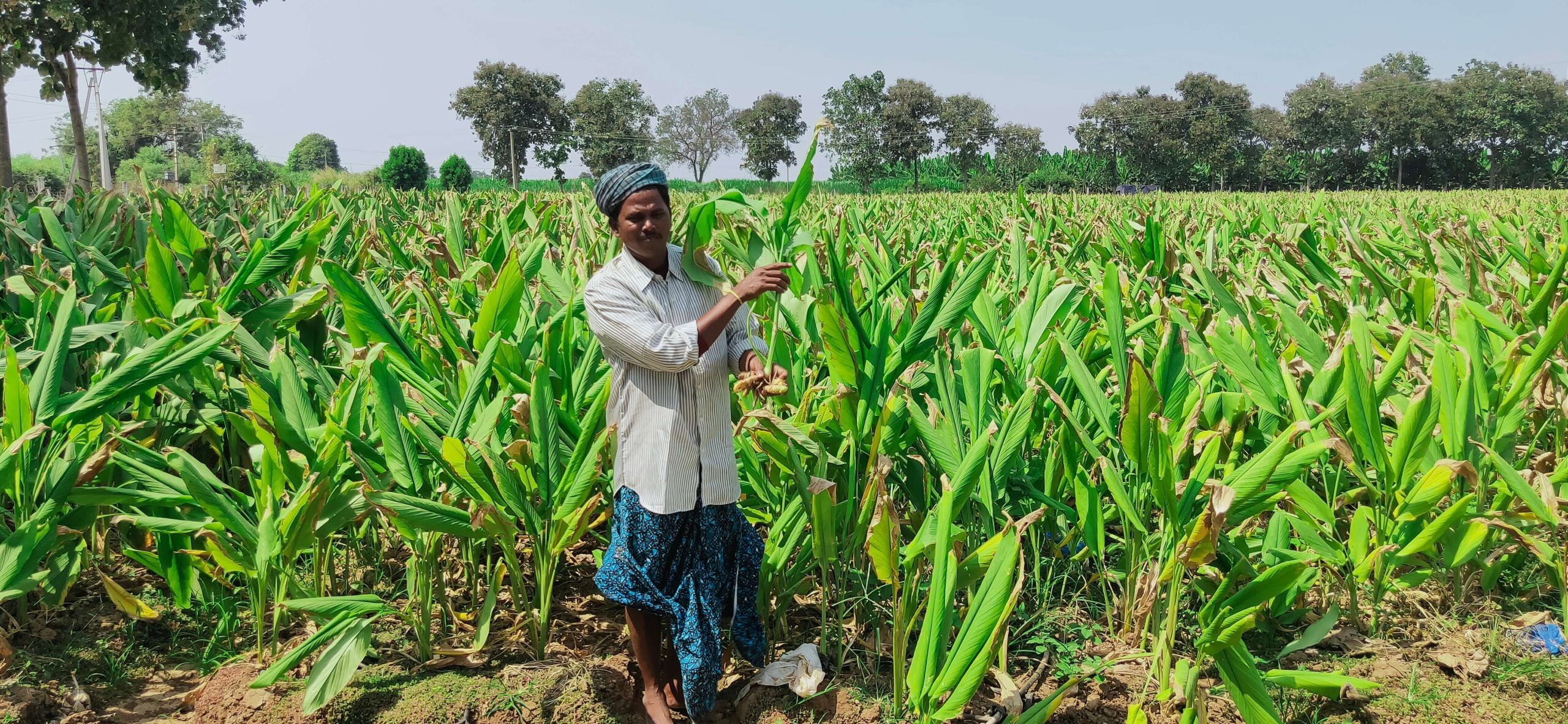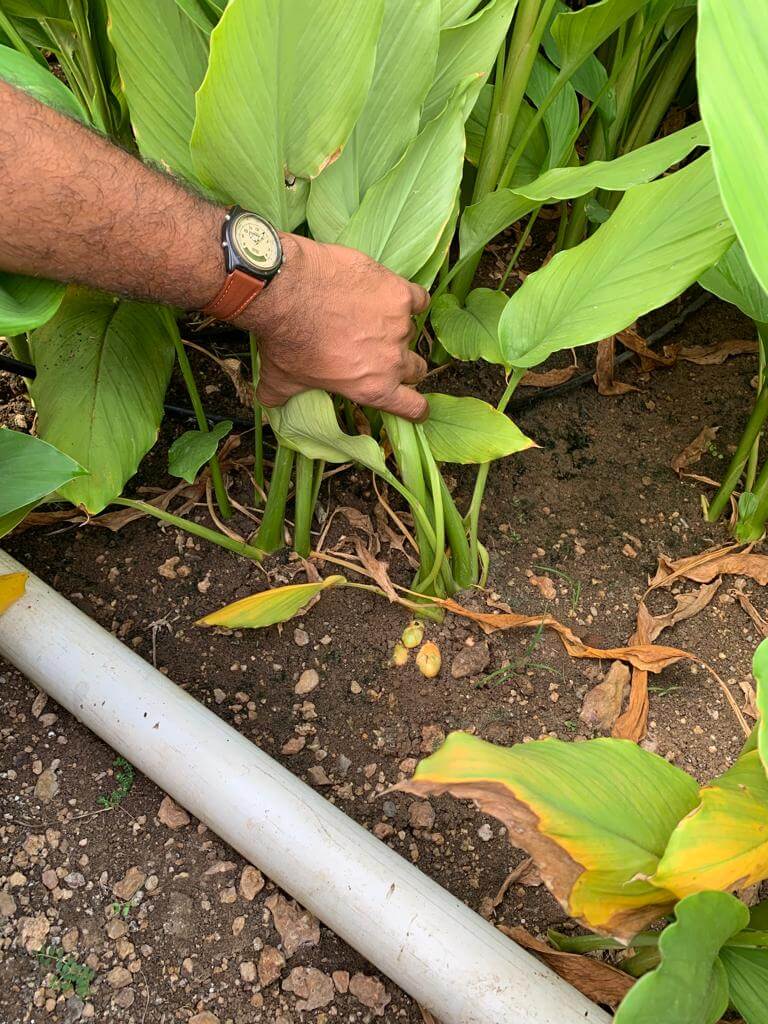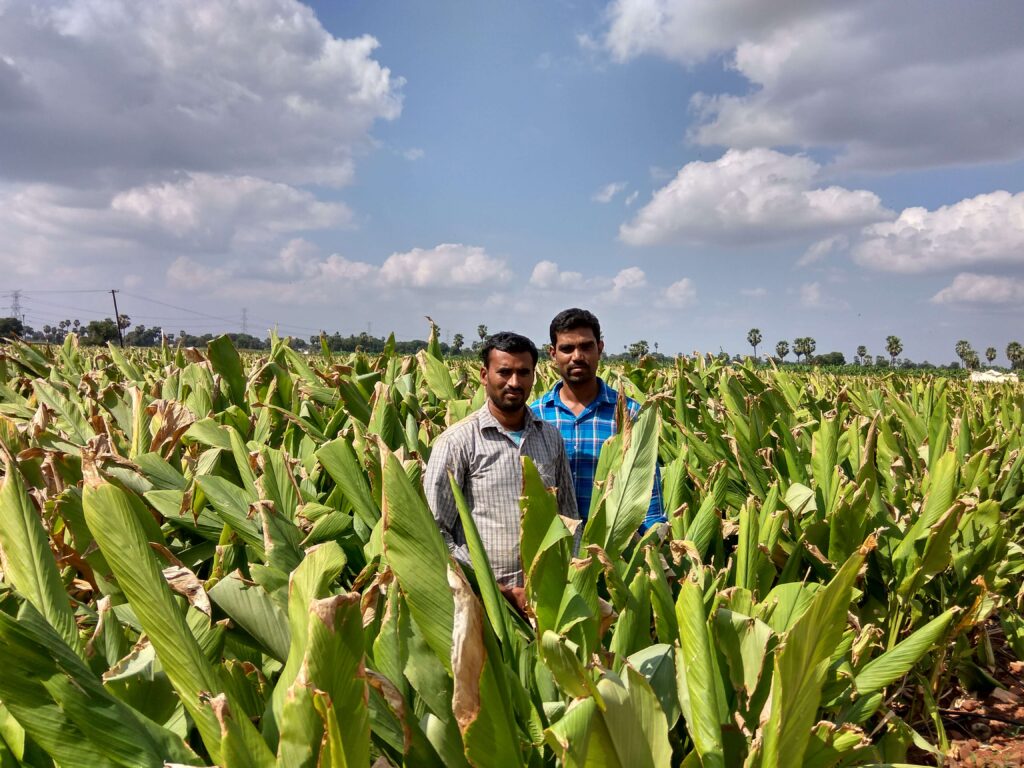Inadequate income often pushes farmers into unsustainable practices
‘We couldn’t ignore the signals’
There were suspicions that turmeric farmers in India were struggling to keep their heads above water. 'These signals called for action,' says Renée van den Elsen, Sustainability manager at Nedspice. Together with Kees Knulst, political advisor at Word and Daad, she shares insights on joint efforts to increase the income of turmeric farmers and improve their living conditions.
'Turmeric is becoming an increasingly popular product, but this is not yet reflected in the price farmers get,' Renée explains. There were signs that farmers growing turmeric were struggling to make ends meet. Nedspice decided to explore how this could be improved. Fuchs Gruppe, a buyer of herbs and spices, joined in. Together with Woord en Daad and Job Booster India, they conducted some research.
Do what’s right
Nedspice is a global and sustainable producer of herbs, spices and dried vegetables. Nedspice has been supporting farmers in Vietnam and India in environmentally friendly cultivation and sustainable livelihoods since 2013 through the Nedspice Farmers Partnership Programme (NFPP), in which more than 5,000 farmers currently participate. Farmers who meet high EU and US quality standards earn a premium price. Renée: 'We have an inherent motivation to do what’s right for farmers.'
'Woord en Daad believes it is important that European and Dutch companies take responsibility,' says Kees. Not all companies want to take that responsibility. ‘Companies that do take their responsibility experience competitive disadvantages from companies that do not. This is partly why companies and organisations such as Woord en Daad are lobbying for legislation.' At European level, work is being done on the Corporate Sustainability Due Diligence Directive (CSDDD). This legislation requires companies to examine their value chain and to start addressing negative impacts.

Pragati!
'We don't just want to point out this responsibility, but also contribute ourselves by helping companies identify and address human and environmental risks.' Nedspice, Fuchs Gruppe, Woord en Daad and Job Booster India looked into the suspicions Nedspice had about the income of turmeric farmers. The project was named Pragati! That means progress in Hindi and is the name of a turmeric variety. As part of the research, a literature review was conducted and 400 farmers were interviewed.
Living wage
The conclusions were presented by Job Booster India in late 2023. The main conclusion confirmed suspicions. A large proportion of farmers earn a lot less than the living wage. 'The more small-scale the farmers work, the more vulnerable they are,' Kees clarified. The living wage for an average household in the Andhra Pradesh region is set at $345 a month. The living wage reflects how much income a household in a region needs to make a decent living.
'Living wage is a lens through which to see other human rights violations,' Renée explains. Without a living wage, there is a greater risk of child labour and gender inequality. At the same time, living wage impacts on farming. The children of low-income farmers often choose to grow another crop or work in another profession. Both farmers and their customers benefit from cultivation continuing to be attractive and earning a good income for everyone in the chain.
The environment also suffers. 'Too low an income often pushes farmers into unsustainable practices.' Farmers use a lot of artificial fertilisers to keep crop yields as high as possible. As a result, soil quality is declining and farmers have to use more and more fertilisers to maintain their yields. These developments affect the chain and pose a risk to the security of the supply of crops in the future.

Taking responsibility
The conclusion and its implications are clear, but what can a company like Nedspice do to improve farmers' income? 'This is a role for social organisations such as Woord en Daad,' says Kees. Based on its experience with agricultural projects, Woord en Daad supports farmers in India. 'We strengthen the position of farmers by providing training to optimise cultivation and improve their operational management.' This also ties in with the NFPP training courses already being provided by Nedspice. Renée adds: 'This project also shows how we can improve our NFPP programme, for example by looking more at gender equality measures.'
A living wage gives farmers in India perspective and helps reduce the risk of child labour and gender inequality. 'Companies should not just look at price. There is a risk that all the issues of sustainability are just pushed further down the chain and no one wants to pay for it,' concludes Renée. 'That's why we like the work of Fuchs Gruppe; they want to take responsibility as the next link in the chain. More companies should be doing that.'

Various legislative proposals have been adopted in Brussels in recent years to promote corporate social responsibility. Several proposals are also in the pipeline. The CSDD is one of them, which is still being negotiated at the time of writing. In 2023, the Corporate Sustainability Reporting Directive came into force, requiring large and listed companies to report on their impact on people and the environment. An agreement was recently reached in Brussels to ban products made with forced labour. This ban means that products suspected of having been produced by forced labour can no longer be imported into the European Union. Companies not covered by these or other legislative initiatives are also required to conduct business in line with the UN Guiding Principles on Business and Human Rights and the OECD Guidelines for Multinational Enterprises - to which the Netherlands is also committed.

